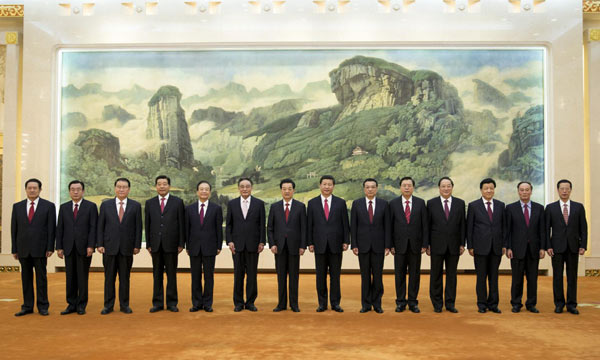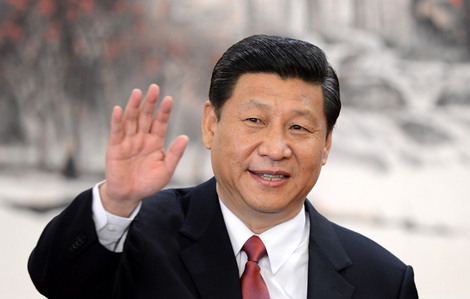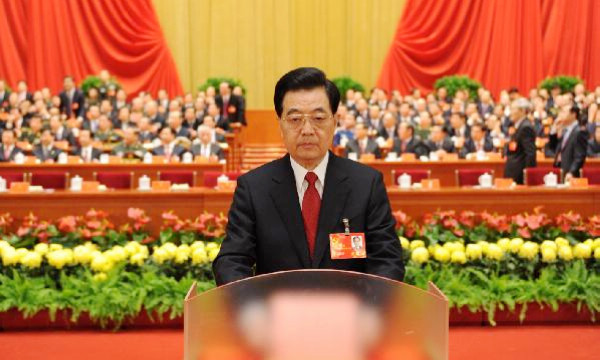Green is new color of beauty
By Liu Xiangrui (China Daily)
Updated: 2012-11-14 02:51
Green progress, which President Hu Jintao emphasized in his report to the 18th National Congress of the Communist Party of China, has remained one of the hot topics among delegates in the past few days.
In the report, Hu drew an unprecedented parallel between ecological progress and economic as well as political development.
Chen Min'er, deputy Party secretary of Guizhou, said the province sees green progress as a way to catch up with more developed areas in the east.
"For a relatively underdeveloped region like Guizhou, industrialization is an inevitable process," Chen said.
"But we can avoid the old way of development, which caused serious pollution and ecological damage."
In 2007, the provincial capital Guiyang established China's first court to deal specifically with environment-related lawsuits. It is also taking the lead in China by stepping up with revision of a local regulation on ecological protection.
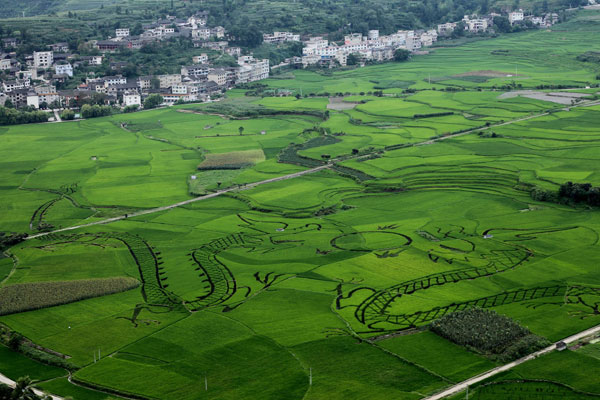 |
|
The outline of two dragons playing with a pearl is traced in a field in Kaiyang county, Guizhou province, in July. WANG JING / CHINA DAILY |
Guiyang became a pilot city for ecological progress in 2009 and a low-carbon city in 2010. An international eco-forum has been held there annually since 2009.
According to Li Jun, Guiyang's Party chief, the city is boosting its green industries to protect the environment and use resources economically. Meanwhile, it is promoting ecological awareness in schools and communities.
Luo Baoming, Party secretary of Hainan province, said green progress needs strong support from industry.
"We can only realize our goal through more green industries, which involve low emissions but high added value, technologies and environmental thresholds," Luo said. "Green industries are the core support for green progress."
According to Luo, instead of simply exporting resources like quality quartz sand and rubber, Hainan has sought to extend its industrial chains.
For example, Hainan has cooperated with China Aerospace Science and Technology Group and is constructing China's largest and most-advanced production base for special-use glasses.
"We create huge added value with our resources in this way. It's good for our long-term development," Luo said.
During the past few years, many cities and enterprises in China have tried to integrate ecological progress with economic development.
"We will say 'no' when new projects go against environmental protection," said Huang Chuping, Party secretary of Yichang, Hubei province.
He said Yichang has refused projects worth more than 10 billion yuan ($1.6 billion) in the past few years over environmental concerns.
In recent years, the city has invested nearly 5 billion yuan in environmental programs and another 3.5 billion yuan to increase its forest cover. More than 2 billion yuan was spent to treat sewage and domestic garbage.
"Ecological progress is a comprehensive project, and we started by establishing a mechanism to ensure it," Huang said.
The ecology has been an important part of the city's management evaluation system, according to Huang. Meanwhile, an environmental protection hotline has been opened to involve more citizens.
Yihua Group, based in the city, has been recognized as a national model enterprise.
Jiang Yuanhua, Party chief and chairman of Yihua, admitted that as a chemical company, it put environmental pressure on the city.
However, it has stepped up green development. In the past five years, with more than 3 billion yuan spent to cut emissions and reduce pollution.
Now all of its factories are equipped with advanced sewage treatment systems and can meet the nation's highest emission standards.
His group has saved about 5 billion yuan through energy saving and pollution reduction projects, Jiang said. Yihua plans another three billion yuan to reduce pollution in the coming five years and will further reduce pollution and energy use through technology, he added.
"I believe President Hu's timely call for implementing green progress bears strategic vision. It's crucial we move with an eye on future generations."
Zheng Qixiang, who maintains navigation markers in the Yangtze River and is also a delegate to the congress, is impressed by the new concept of "a beautiful China" proposed by President Hu.
He pointed out that the ecological campaign requires the efforts of everyone. In the past decade, Zheng and his organization have made great efforts in technological innovation for environmentally friendly traffic on the Yangtze River, and developed solar-powered navigation beacons that have been introduced around the nation.
"If everyone can strengthen environmental awareness in our daily work and living, I believe China will grow more and more beautiful," Zheng said.
An Baijie contributed to this story.
Contact the writer at liuxiangrui@chinadaily.com.cn
Related Stories
Green economy urged amid restructuring 2012-11-10 10:08
CPC congress report drives up 'green' shares 2012-11-13 16:26
$1.28 trillion to be invested in green economy 2012-11-13 19:50
Green trends drive tech boom 2012-11-10 08:09
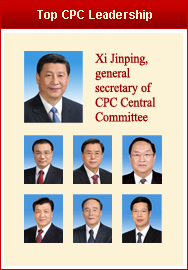
Top News
A new generation of leaders
Xi's address to the media
World welcomes China's leadership change
Video


